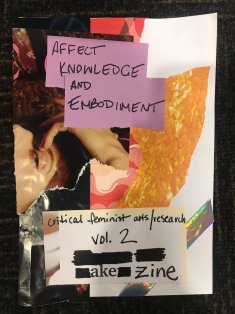As part of my experiments with innovative methods for social research and developing design sociology, I have been using a set of image cards developed by Dan Lockton and his team at the Imaginaries Lab for their New Metaphors workshops. Dan has kindly made these resources open access (see here). The cards consists of two types: 1) a range of diverse images of things, activities and experiences that exist in people’s everyday lives (natural phenomena like clouds, rain, trees or animals and things from built environments such as cracks in pavements, graffiti and the hum of a fridge); and 2) a range of topics, concepts or ideas (for example, safety, love, fame, half-remembered dreams and personal security). I printed out a set of the New Metaphors cards, and over the past two weeks have run two pop-up methods workshops at my Vitalities Lab to experiment with them.
The two groups who came along to the workshops (there were about 15 people at the first one and ten at the second workshop) participated in activities that I devised, and then provided feedback on how they found the activities and how they thought they could use the cards in their own research or teaching. The feedback from both workshop groups was very positive: members enjoyed working with these cards and thinking about how they could use them.
At the first workshop, I used a worksheet I downloaded from the Imaginaries Lab and a research activity worksheet that I had crafted myself. After the first workshop, I developed a new worksheet, and renamed the activity ‘Vital Images Method’ to better describe what I was wanting to do with it. The two worksheets I developed are provided below. They can be downloaded at the links here as well: VITAL IMAGES METHOD – worksheet 1 VITAL IMAGES METHOD – worksheet 2
VITAL IMAGES METHOD: WORKSHEET 1
Image [title]: _______________________________
Choose an image card. Describe what you think of, see, feel when you look at this image.
Topic [title]: ___________________________________________
Choose a topic card. Describe what you think of, see, feel when you consider this topic.
Circle words that are shared. What are the similarities and differences? What new or surprising connections do you see?

Worksheet 1
VITAL IMAGES METHOD: WORKSHEET 2
People can work as individuals, in pairs or in small groups.
Identify a topic (e.g. big data, apps, data privacy, smartphones, fitness, exercise, good health, a specific health condition, a risk or threat) that you would like your research participants to focus on.
Ask your participants to sort through the image cards and pull out some (say three or four cards) that they associate with the topic (in present day or a specified period into the future [10 years, 20 years etc]). Ask them to reflect on these questions (they can write these reflects down or record them using a voice recording device):
- What do these images mean to you in relation to the topic?
- Why do you think you chose them?
- What feelings/emotions do they inspire in relation to this topic?
- Did these images provoke new connections or ideas for you?
- Did you make any connections or ideas that surprised you?
Alternative approach: rather than ask participants to choose image cards, provide them with cards randomly, and ask them to undertake the same reflections.
Extensions
- Make a drawing or map of the connections you see between the image and the topic.
- Write a short story or make a story board based on the ideas generated by the images.

Worksheet 2
Analysis
The participants’ reflections can be used as research data – as a way of inquiring into the often unrecognised or unacknowledged memories, feelings and associations that people draw on to give meaning to their worlds.






 Ashleigh has launched the call for submissions for So Fi Zine edition #6 – So Fi Zine is a sociological fiction zine for arts-based research, creative sociology, and art inspired by social science. The zine publishes short stories, poetry, photography, photo essays, cartoons, and other creative works. Edition #6 will be published in November 2019 and is inspired by Deborah Lupton’s digital, creative, more-than-human and future oriented research. Pieces are invited that creatively explore sociological futures: bodies, spaces, disciplines and things. Submission info and previous edition of the zine can be found
Ashleigh has launched the call for submissions for So Fi Zine edition #6 – So Fi Zine is a sociological fiction zine for arts-based research, creative sociology, and art inspired by social science. The zine publishes short stories, poetry, photography, photo essays, cartoons, and other creative works. Edition #6 will be published in November 2019 and is inspired by Deborah Lupton’s digital, creative, more-than-human and future oriented research. Pieces are invited that creatively explore sociological futures: bodies, spaces, disciplines and things. Submission info and previous edition of the zine can be found 





